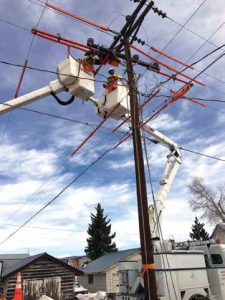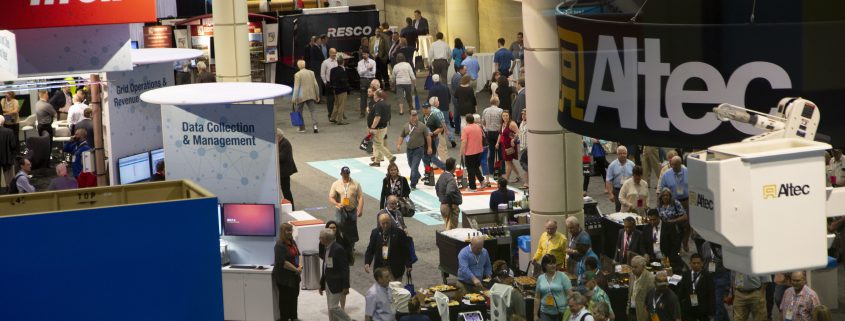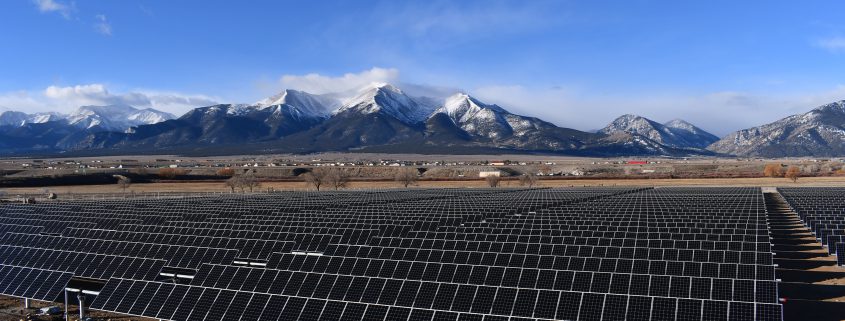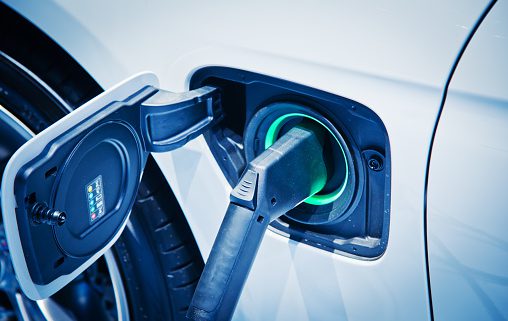Co-ops’ Commitment to Zero Contacts
By Amy Higgins
Complacency can be dangerous. And with years of experience and daily repetition, it is easy to get complacent — both at home and on the job.
But complacency at work, especially for electric lineworkers, can be disastrous. Working with electricity is one of the most dangerous jobs out there and one mistake can lead to a catastrophic event. For example, if a lineworker fails to inspect his rubber gloves and has the smallest tear, he could be vulnerable to a fatal contact with electricity.
A new electric co-op initiative is designed to help lineworkers get back to basics, slow down and take time to be safe.
Identifying the problem
About five years ago, the injury rate at electric cooperatives was declining, but a closer look showed that the most serious injuries and fatalities were far too frequent to ignore. From 2006 to 2016, the electric cooperative industry experienced an average of 23 injuries per year. Of those injuries, approximately 40 percent — 10 to 11 per year on average — were from an electrical contact.
“When we looked across the industry, it was the same across communities in the industry, so we started partnering with Federated (the electric co-op insurance company) and meeting with cooperative leaders and looking at what we could do to study the problem,” said Bud Branham, director of safety programs at the National Rural Electric Cooperative Association. “We started looking at that [data] and realized very quickly it’s a cultural- or behavioral-based problem where people — at organizations and co-ops — get blind spots over time, and in those blind spots you might have some inconsistencies in your basic work practices.”
“A lot of times we just focus on the power lines; we don’t focus on the other things around us,” said Dale Kishbaugh, director of safety and loss control at Colorado Rural Electric Association. Things like surrounding traffic, uneven working ground or confined spaces could affect how safely a job is done.
“We want to slow people down, especially on the routine work, and we want to do good job planning,” Branham explained.
Creating the program
Driven by the dedication of the safety of cooperative employees, NRECA, Federated Rural Electric Insurance Exchange and the safety leaders at the nation’s electric cooperatives introduced the Commitment to Zero Contacts initiative in April 2018. Through the program, participants are asked to take a pledge to take all the necessary steps at work and home to eliminate serious injuries and fatalities.
Following protocols, even if it makes the job longer, means everyone goes home at the end of the day.

Following protocols, even if it makes the job longer, means everyone goes home at the end of the day.
“We also asked senior leaders and the employees at the co-op, especially the field employees, to make a commitment. That commitment is really key,” Branham explained. “All the research shows that when people make a voluntary commitment that links to their internal values and they put it in writing — display it publicly — it has a large effect on changing or affecting their behaviors and awareness.”
“Commitment to Zero is not the next program; it is an initiative focused on eliminating contacts by permanently changing culture and addressing perception and behavior,” noted Corey Parr, Federated vice president of safety and loss prevention. “The initiative is focused on three keys: awareness, expectation and accountability.”
Commitment to Zero Contacts comes with a slate of resources to help electric co-ops get started, including implementation guides, placards, videos and promotional materials. Federated even created an app: S.A.F.E.
An acronym for Stop And Focus Everyday, the S.A.F.E. app is a job-planning tool to help workers avoid missing crucial steps at every job site, especially the most routine jobs where oversight and injuries are most common.
“The intention is just trying to get everybody to do their best every day, and if you see somebody in harm’s way, prevent it before it happens,” Kishbaugh said.
Rolling out the initiative
“We’ve done the groundbreaking with the ‘speak up, listen up’ training,” Kishbaugh said. “We’re just continually going out to support our co-ops and making an effort to get everybody to make that commitment that they’re going to go home the same way they came to work every day.”
Many electric cooperatives already have a safety program established and use the Commitment to Zero Contacts program to enhance it, which is highly encouraged. Fort Collins-based Poudre Valley Rural Electric Association and Mountain View Electric Association, with offices in Falcon, Limon and Monument, are two Colorado cooperatives doing just that.
“When I heard about the program, rather than just jump on it right away, I came back and I talked with our safety team to get their ideas,” said Jeff Wadsworth, president and chief executive officer at PVREA. Wadsworth handed it off to a team of employees, which consisted of linemen, equipment operators, tree trimmers and even office employees who also face work hazards every day.
The PVREA team took the Commitment to Zero Contacts initiative, integrated it into their current safety program and began promoting it with specially-made hard hats, stickers and signs. They even created a video called “This is My Why,” featuring PVREA families who remind their loved ones to be safe on the job, saying: “We want our loved ones home at night,” “So we can grow old together” and “So we can play LEGO games.”
Based on employee feedback, MVEA rolled Commitment to Zero Contacts into its “Commitment to Safety” program that targets three groups within the co-op: leadership, qualified employees and employees who do not work with high voltage. Those in each group were asked to sign a “Commitment to Safety” pledge.
“When employees get hurt, or worse, it affects everyone and changes everyone forever,” said Todd Thomas, safety compliance administrator at MVEA. “This effort is intended to remind us to slow down, be safe and watch out for each other. We do this for ourselves, our families, our friends and our co-workers.”
MVEA’s “Commitment to Safety” logo can be found on all internal memos, the monthly safety posters, in the monthly employee newsletter and on employee wallet cards that highlight MVEA’s Safety Improvement Plan Priorities as well as important RESAP (Rural Electric Safety Achievement Program) information.
As of late February, 14 of those in Colorado’s electric co-op community had made the Commitment to Zero Contacts; 530 co-ops nationwide made the pledge.
“The commitment we ask for is not about people admitting they’re doing anything wrong or that there’s any finger pointing, or blame pointing,” Branham explained. “It has nothing to do with liability. In fact, we hope that the commitment will reduce the exposure, and the co-ops are aware across the country so that we have our people go home safe at night. Basically, that’s the bottom line.”
Amy Higgins is a freelance writer for Colorado Country Life.





